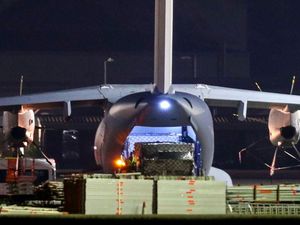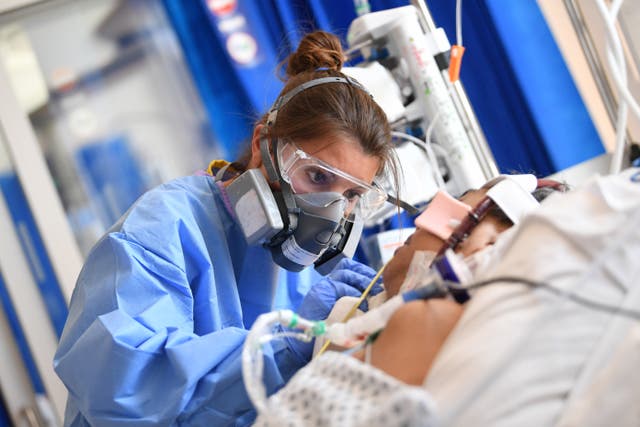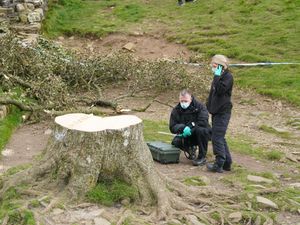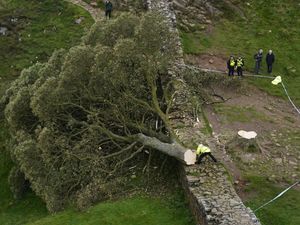Government seeks replacement or refund for 400,000 impounded gowns from Turkey
The personal protective equipment was flown into the UK by the RAF last month but has not been released to NHS staff.

The Government is seeking a replacement or refund for the 400,000 medical gowns from Turkey that were impounded after being deemed not good enough for use within the NHS.
The shipment of personal protective equipment (PPE), which had to be flown in by the RAF last month after delivery was delayed, has been hauled up in a warehouse after falling short of UK standards.
The items had been promised by ministers to frontline NHS staff in a bid to protect them from coronavirus when treating patients.
But Northern Ireland Secretary Brandon Lewis said during the morning broadcast round that the products turned out to “not be of the quality that we feel is good enough for our frontline staff”.
The Prime Minister’s official spokesman confirmed to reporters on Thursday that the UK wanted to be compensated following the decision to impound the goods.
“An initial deposit was paid and the NHS is in discussions with the supplier over whether replacement gowns can be manufactured to meet our standards,” said the Downing Street spokesman.
“If this is not possible a refund will be sought.”
The Department of Health and Social Care (DHSC) has been approached for comment regarding how much the deposit was after Number 10 declined to disclose what was paid.
The decision to impound the imported goods is another blow in what has proved an embarrassing episode for the Government and its efforts to procure PPE.

The shipment had been dubbed “Air Jenrick” after Communities Secretary Robert Jenrick promised a “very significant additional shipment” of PPE from Turkey on April 18, saying it would arrive the next day.
Despite Downing Street’s claims, the shipment was delayed by a number of days and the RAF had to be mobilised to bring the cargo to Britain, arriving at RAF Brize Norton on April 22.
But more than two weeks after their arrival, it has now been confirmed that the gowns do not meet UK standards.
Speaking on Sky News, Cabinet minister Mr Lewis said: “When we’re securing PPE from around the world you do it based on a set of standards that you’re looking to acquire to, but obviously once it’s here we check that it is good enough for what we want to use, and in this instance some of this PPE turned out not to be good enough.”
According to the Daily Telegraph, the faulty gowns have been held in a Government warehouse near Heathrow.
The Turkish company which supplied the goods has said they had not received any complaints, according to the BBC.
Mehmet Duzen, from Selegna Tekstil, told the news organisation: “The fabric we supplied was certified. All the goods were certified.”
The PA news agency has contacted Selegna Tekstil for comment.
Issues over the supply of protective equipment such as gowns and masks for health workers have plagued the Government throughout the pandemic.

Niall Dickson, chief executive of the NHS Confederation, said the Turkish shipment episode had shown “the absolute danger of making promises when you can’t be sure you can keep them”.
He told BBC Radio 4’s Today programme: “We know the number of gowns or masks or aprons or the type or the quality of equipment is not always what it says in the box, and we have warned that setting targets that are not met or saying it is all going fine – when on the front line it manifestly in places is not going fine – undermines confidence.
“And it undermines confidence not just in our members and local leaders but among frontline staff.”
Justin Madders, Labour’s shadow health minister, called the impounding “the latest in a number of mistakes the Government (has made) during its response to the pandemic”.
The DHSC said it was “working night and day to source PPE internationally and domestically”.
A spokesman said: “This is a global pandemic with many countries procuring PPE, leading to shortages around the world, not just the UK.
“All deliveries of PPE are checked to ensure the equipment meets the safety and quality standards our frontline staff need.
“If equipment does not meet our specifications or pass our quality assurance processes, it is not distributed to the front line.”





